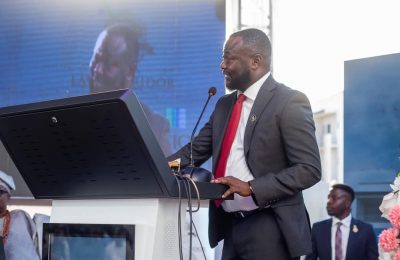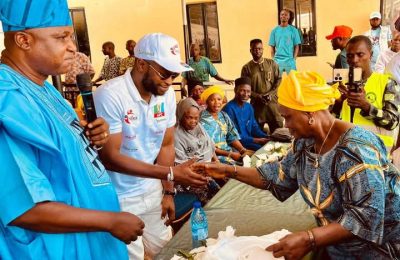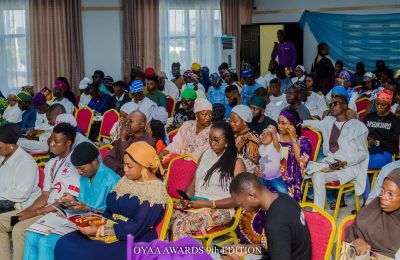
One of Nigeria’s music legends, Ambassador Osayomore Joseph is dead.

Osayomore Joseph, whose passage was announced on Saturday by the Edo State Chapter of the Performing Musicians Association of Nigeria (PMAN), died five months to his 70th birthday.
According to a statement by Comrade Willy Eghe-Nova, PMAN Administrator/Governor, Edo State Chapter, “PMAN has this Saturday afternoon, June 11, 2022, lost a great member and music legend, Ambassador Osayomore Joseph. May his creative soul rest in peace.”
Osayomore Joseph was born on October 29, 1952, in Ugha village near Benin City, Edo State, Nigeria.
He had a reputation as a freedom fighter, an activist musician with a long history of criticizing local and national political corruption through his music.
Osayomore’s music chartbusters ‘Efewedo’, ‘Baba Na Wa,’ ‘Leave us alone,’ ‘Evil days postponed’ are all in pidgin English.
In his early life and educational pursuit, Osayomore Joseph moved to Lagos when he was 19 years old and began his musical career as a member of the Nigerian Army Officers Mess band. it was in the band he developed his flute and guitar skills.
Inspired by Sir Victor Uwaifo, Fela Anikulapo Kuti and King Sunny Ade, Osayomore Joseph branched out and began releasing his own music in 1976.
After releasing several albums from 1976 to 1979 he returned to Benin to continue his career which was picking up support amongst Edo people in Benin.
He used his musical training to combine contemporary popular music — funk, Afrobeat, and highlife with Edo’s indigenous songs and rhythms.
The funky, percussion-heavy grooves earned him fans across Nigeria and among the growing Edo communities in the U.S. and Europe.
With this sound, Osayomore had several regional hits in the early ’80s, including “Efewedo,” “Ororo No Dey Fade” and “Soja Go Soja Come.”
Osayomore returned to Benin and found success between 1980 and 1985 with a series of fan favourite hits. This success came as Nigeria was transitioning into a long period of military dictatorship.
The harsh austerity measures and political unrest disrupted the social and economic lives of the people to the point where even an artiste like Osayomore began to use his music to comment on the situation.
Osayomore responded to the political environment in the early 1990s with a series of critical songs, including “Truth” and “Teacher.” Until Babangida invalidated the results of the democratic election of June 12, 1992, which should have brought popular politician M.K.O. Abiola to power, Osayomore had always kept his criticism primarily indirect, however he made a bold statement with his album, June 12 Is God’s Mandate. In his song called “Baba Na Wa.” In it, Osayomore calls Babangida “evil,” the “original criminal,” and the “father of all disasters.” Continue Reading








